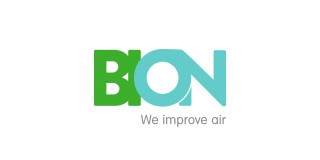

Bioconservación
Phytosanitaries
How to eliminate ethylene during banana transport and preservation?

Banana is a climacteric fruit that increases its respiration and produces a lot of ethylene during its postharvest phase.
They are usually harvested at a stage prior to ripening for transport and then artificially ripened in ethylene chambers.
Banana quality can be seriously affected if bananas produce moderate amounts of ethylene during transport.
Ethylene affects bananas in ways that:
- It accelerates ripening and over-ripening
- Softening and causing loss of firmness
- Alters the color of bananas causing yellowing
- It suffers a higher incidence of rots and microbial infections such as: Calletotrichum musae, Botrytis cinerea or Lasiodiplodia theobromae.
- Lower lot homogeneity after artificial ripening.
To avoid wastage, measures must be taken to ensure that green bananas are not exposed to ethylene until artificial ripening is required.
The most common diseases due to the effect of ethylene are obvious to the naked eye.
Anthracnose, caused by Colletotrichum musae, is a typical post-harvest disease that is evident on ripe bananas, showing wounds and skin openings.
The removal of ethylene during transport delays the development of anthracnose after artificial ripening.
In the case of the banana crown, it is common to see its rotting or degradation during postharvest.
Crown rot is usually caused by Lasiodiplodia Theobromae, among other fungi, showing dehydration and blackening during ripening. This is activated by ethylene creating a degradation of the skin that invades the whole fruit.
To avoid uncontrolled ripening, it is necessary to eliminate ethylene and prevent fungi from proliferating.
BION's Transprotekt filters and Ethyl Stopper sachets have an antimicrobial action that extends the shelf life of bananas while removing ethylene from the environment thanks to the action of potassium permanganate.
The use of Transprotekt filters and Ethyl Stopper sachets:
- Increases the shelf life of the product
- Reduces waste due to over-ripening or spoilage
- Maintains batch homogeneity after artificial maturation
- Eliminates odors in cold stores
- Avoids complaints, returns, renegotiations from customers
- Allows to benefit from price fluctuations
- Harmless to workers, bananas and the environment
- Maintains the color of the banana
- Easy to handle and inexpensive
- Compatible for use in organic products

















